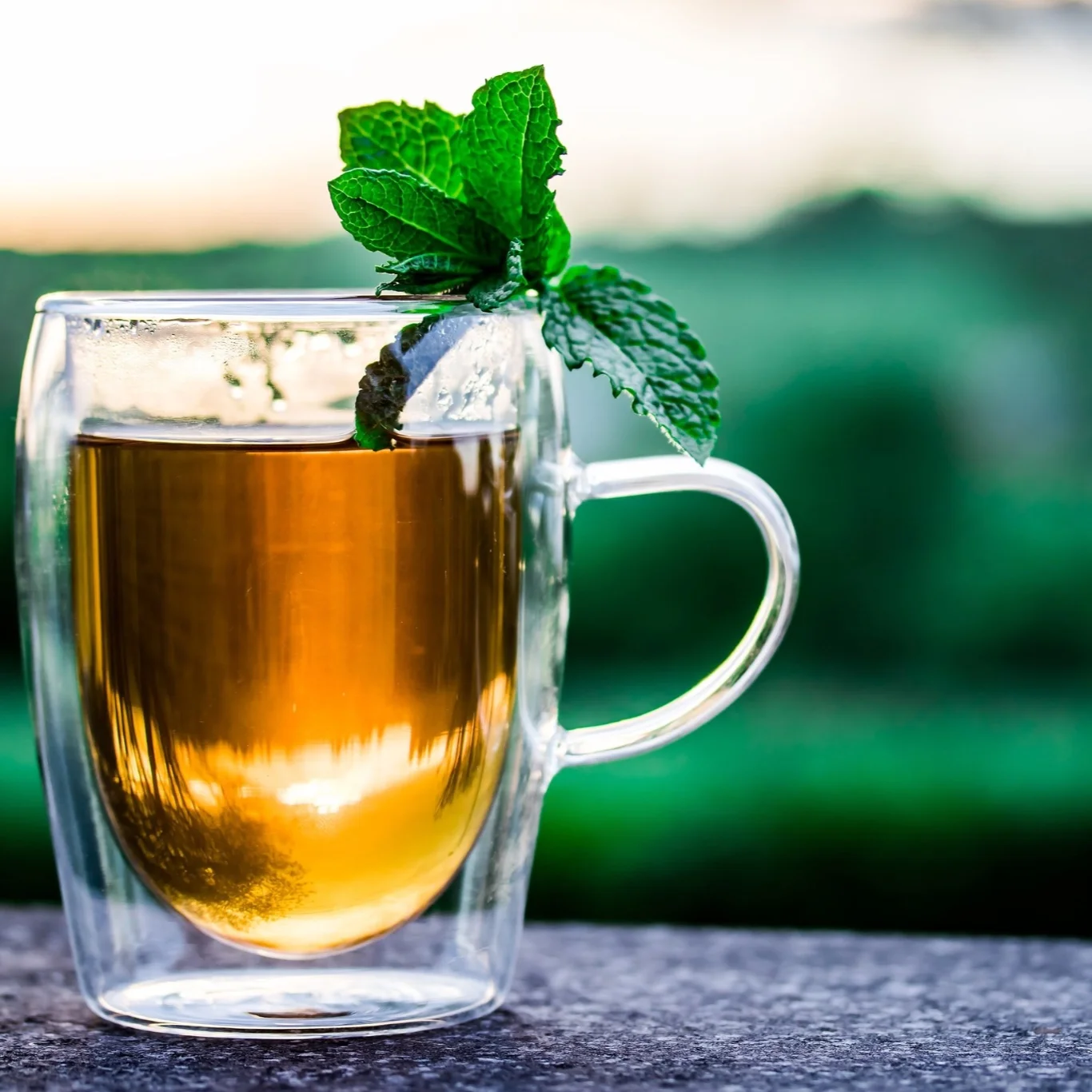Yerba: A New Player in the Caffeine Game?
by CYNTHIA TZE
It’s been a long night, and you have an even longer day ahead of you. You’re tired, and you debate between taking a nap and pulling an all-nighter. What do you grab to drink for a caffeine boost?
There’s coffee, which is cheap and easily accessible, and you know it works because you drink it all the time. There’s green tea, which you recently bought in an attempt to curb your coffee addiction. And then there’s the yellow can of “yerba mate” that your roommate gave you, claiming that it’s the new wonder drink. But what is yerba mate exactly?
Yerba Mate
What is it?
Yerba mate is a plant hailing from South America, where it has shaped many social, cultural, and spiritual traditions. In fact, the drink is sometimes used for ceremonial purposes as a symbol of hospitality to loved ones. Mate can be consumed in many ways, from a simple beverage made from steeping tea leaves in hot water, to a bottle of iced tea flavored with fruit juice, milk, or other additives. It has recently gained a lot of popularity among college students, many of whom drink it while studying and to stay awake in classes. Many people claim that yerba mate lacks the caffeine rush that coffee often induces, avoiding the initial jitteriness and later crash that the more commonly known caffeinated beverage is associated with. It nonetheless still provides a boost of energy and wakefulness.
CAFFEINE CONTENT
Yerba mate contains about 85mg of caffeine per 8 fluid ounces, depending on the type of leaf used and the method of processing. This is less than the amount typically present in coffee and energy drinks, but more than that in green tea. However, the dosage of caffeine in yerba mate is often more concentrated in commercially sold drinks, containing multiple servings in a single can or bottle. [4] Some beverages are even labeled as “energized,” implying that they include similar contents of caffeine as actual energy drinks.
A 2004 study compared the effects of yerba mate and coffee on alertness, and found that yerba mate has no significant effect on cognitive performance, while coffee improves accuracy. Specifically, participants who consumed coffee experienced a peak alertness after 30 minutes, while those who consumed yerba mate experienced a lag in increased alertness, but instead reported sustained attention throughout the day. Thus, yerba is not particularly better or worse than coffee; rather, it depends on the type of alertness the consumer is looking for. [1]
Health Benefits
The people of South America who have been drinking yerba mate for thousands of years believe that the drink has awakening properties and is spiritual in the way that it provides numerous health benefits for the body. A 2007 study on the chemistry of the tea sought to investigate such claims.
The study found that the chemical properties of yerba stimulate the central nervous system, lower cholesterol levels, reduce the risk of heart disease, and protect the liver from damage. [2] Specifically, obese individuals who consumed mate tea reported increased fat oxidation in the study, which may explain why many weight loss detox teas often include trace amounts of yerba mate leaves. Many commercially sold yerba drinks are even labeled as “dietary supplements,” with hundreds of testimonials online revealing how drinking yerba mate has completely changed lifestyles by helping consumers lose weight and feel more energized.
Yerba mate tea-based energy drinks contain 100 times the amount of antioxidants found in other energy drinks. The antioxidants may explain the mate’s effective role in inhibiting topoisomerase, a primary component of cancer. [4] One study even suggests that consumption of the tea before exercise increases blood antioxidant levels and improves strength within 24 hours of exercise, but has no effect on overall strength. [5] Nevertheless, it is important to note that this study was conducted on a small sample of athletes, and may therefore not be indicative of the average population.
However, because traditionally brewed yerba mate is distinctly bitter, many commercial companies offset the taste by including large amounts of sugar and flavor additives in the commercially sold beverages. Excessive consumption of yerba drinks may even be linked to oral, oropharyngeal, esophageal, and laryngeal cancer, all of which are associated with areas that the tea passes by when consumed. [3] Therefore, yerba-containing drinks should be consumed in moderation to avoid any potential side effects.
Coffee
Coffee has on average 95mg of caffeine per 8 fluid ounces, which can vary depending on its preparation. This is higher than the amount present in both green tea and yerba mate.
There are health benefits of both coffee and yerba mate. Studies have found that coffee consumption is associated with a lower risk of type 2 diabetes, obesity, cardiovascular disease, and neurodegenerative disease, while mate consumption is linked to reduction in cholesterol levels and weight loss. [6] Coffee and yerba mate can also affect cognition, but to different degrees. Due to its higher caffeine content, coffee has a more profound effect on alertness. This “rush” of energy is often paired with a crash later in the day, marked by extreme sluggishness and lack of attention. Yerba mate, on the other hand, has a longer and more sustained effect on cognition, with a gentle rise of energy that lasts longer throughout the day. It is also important to note that coffee drinkers are more prone to addiction than yerba mate connoisseurs, seeing that many people are unable to function normally without their daily intake of coffee in the morning.
Green Tea
Green tea (the drink) has an average of 35mg of caffeine per 8 fluid ounces, which also varies depending on the type of product and method of production.
Both green tea and yerba mate provide health benefits and share many similar properties. Green tea has been suggested to enhance stamina, incite intellectual level, improve brain and vascular functions, and enhance longevity. Some studies also show that they both possesses antioxidant, anti-aging, anti-inflammatory, and anti-diabetic properties. [7] The difference between the two is that yerba contains more caffeine than green tea, so people generally reach for yerba mate for a caffeine boost, while those who consume green tea may have a different purpose. For example, green tea is often consumed as a weight loss supplement or for its calming and soothing properties.
Bottom Line
Many of the existing studies of the effects of yerba mate on the body are not definitive, since the introduction of the beverage is relatively new and much more research needs to be done. Many findings of the yerba mate studies may be attributed to a chance result of individual differences between subjects, or differences in the types of mate drinks studied. While studies on green tea and coffee are not definitive either, many studies have reached the same results and conclusions on the two drinks.
Like everything else, all three options should be prepared traditionally to obtain maximum benefits and to avoid additives found in commercialized versions. So which is best for you? It really depends on what you’re looking for: whether for a rush of alertness or for a boost in antioxidants, choose the drink that best serves you.
References
“Psychological and Cardiovascular Effects of Guarana and Yerba Mate: A Comparison With Coffee.” Interamerican Journal of Psychology. (2004).
“A Comprehensive Review on Chemistry, Health Implications, and Technological Considerations.” Journal of Food Science. (2007).
“The beverage maté: A risk factor for cancer of the head and neck.” Journal of the Sciences of the Head and Neck. (2003).
“Energy Drinks: An Assessment of Their Market Size, Consumer Demographics, Ingredient Profile, Functionality, and Regulations in the United States.” Comprehensive Reviews in Food Science and Safety. (2010).
“Effects of mate tea consumption on muscle strength and oxidative stress markers after eccentric exercise.” British Journal of Nutrition. (2016).
“Coffee Consumption and Disease Correlations.” Critical Reviews in Food Science and Nutrition. (2017).
“Green tea and l-theanine: Medicinal values and beneficial applications in humans—A comprehensive review.” Biomedicine & Pharmacotherapy. (2017).











